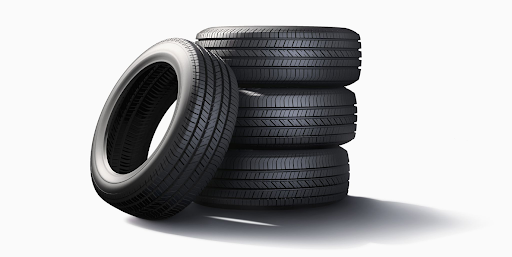
Tires can be the difference between class and mediocrity in the car industry. Though they have no expiry date, they wear out as you drive through different terrains. The rate at which your car tire wears out is determined by the tire type, car type, weather conditions, and roads conditions you are driving on. You should practice responsible driving and proper maintenance to enhance the durability of your tires.
Frequent inspection will let you know the best time to replace your tires when they are worn out. Since they are car parts between you and the road, you should ensure optimal safety and performance and prevent any accidents. This article provides a comprehensive tire guide for buying tires to ensure you enjoy a smooth ride. With this information, you will know what you are looking for and not fall into the hands of tires sellers who may sell you what does not fit your needs.
Factors to consider when buying tires
You want to buy good tires to ensure your vehicle performs optimally in the long term. Your focus when shopping for tires is quality rather than appearance, for appearance can be deceiving. The following factors will guide you to make the best choice.
1. The Brand

Covid-19 has dramatically impacted the economy, and challenging economic times are staring us head-on. Many people opt to go for cheaper tires and save their wallets but choose substandard tires in the end. Though some international brands are expensive, they make high-quality and better-performing tires, giving your vehicle a better service and presentation. With the flood of information on the internet and online shops, it is easier to search out these brands and peruse through customer reviews which will enlighten you about the tire service and quality. Go for top-class brands because they spend lots of time developing durable tires that serve you for more extended periods.
2. Type of your Vehicle

Tires are essential because they keep your car over the ground. Each type of car has an appropriate and compatible tire. Therefore, you must buy the correct type for your vehicle to minimize accidents on the road. Additionally, you could find yourself on the wrong side of the law if you choose inappropriate tires for your car that could risk the lives of fellow road users. You need to understand your vehicle requirement and the size because mounting a smaller tire on your vehicle creates pressure on the rubber which is likely to cause an accident. A compatible tire will help the car engine move the body save on fuel consumption, and ensure your safety.
3. Fuel Economy

Fuel prices are on the rise in most places, prompting most drivers to seek a way to get the best fuel mileage from their vehicles. Many people are not purchasing hybrid cars with fuel-efficient tires to save on fuel consumption efficiently. These tires are manufactured with the latest technology, which ensures reduced rolling resistance, minimizes energy loss, and maximizes the required fuel needed to sustain the car. It is advisable to purchase original equipment tires to help you save on fuel. You could also consult with different tire manufacturing companies to learn more about this in detail.
4. The Tread Wear Factor
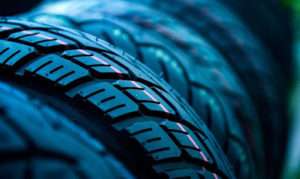
The vehicle’s tread wears out and becomes shallow with everyday driving, thus impacting tire performance. Shallow treads can also cause the tires to lose traction and slide, deviating from the intended path, which can be dangerous. You do well to constantly check your car’s tread depth for each tire so that you can replace them for optimal performance. The best tires are ones that can withstand all weather conditions and don’t wear out rapidly, meaning you will not replace the thread often; therefore, saving on cost and promoting safety while you are behind the wheels.
5. Tire Maintenance Issue
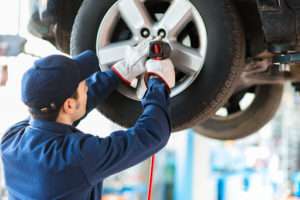
Well-maintained tires are durable and reduce the risk of premature failure, excessive wear, and frequent visits to tire dealers for new ones. Ensure you regularly inspect the health of your tires to detect any minor issues before they escalate to major ones. Some common ways to maintain your tires include:
Maintain Inflation Pressure at Recommended Levels
Your vehicle recommended levels can be found on your vehicle’s manual, and if you follow those guidelines, you will enhance the tire’s durability and longevity. If you drive a car with low pressure in the tires, that could create cracks. On the other hand, overinflated tires are prone to quick wear and tear because of stiffness and reduced traction. Your vehicle will be safe, save up on fuel, and increase performance with the correct inflation pressure.
Avoid Spinning your Tyres Excessively
Most cars get stuck in snow and ice during winter, and getting them in motion becomes a challenge. It would be best if you avoided aggressive spinning of your vehicle in an attempt to unstick it because the tires will be overheating, thus causing permanent damage. Instead, you could gently rock your car back and forth to improve its traction and get it out of the rut.
Check your Tyres for Wear
Driving a vehicle with worn-out tires is dangerous and can result in loss of life. They lose traction faster and blow out when overheated by road friction, leading to accidents. Another reason why you should replace worn-out tires immediately is because you can have a puncture at unwanted times; it takes longer for the brake to kick in during the rain and could result in tire bursts.
6. Noisy Tires Factor
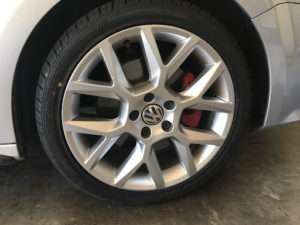
In most conventional vehicles, tire material interacts with the pavement resulting in some noise due to the air flowing through their tread. However, some tire noises indicate an abnormal issue like a broken belt or tire wear. Some brands manufacture vehicles with tires that produce less noise for a quieter ride, while others make a noisy ride, preferred by some people. Depending on your preference, you do well if you do a test drive to know the noise level produced. You can also visit the car dealer’s website and read clients’ comments on this feature to get honest feedback.
7. Speed Rating
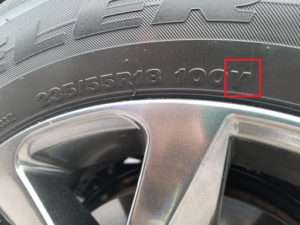
Tires differ on the optimal speed they can safely maintain over an extended period. Tires with a higher speed rating enhance handling and better vehicle control, but their treads wear out quickly, which means you will replace them more often than those driven relatively slowly. However, high-speed tires are popular among some people, especially young drivers, because of the following benefits:
Better stopping ability
Most roads are used by other vehicles and pedestrian crossings, underscoring the need for better car stoppage to avoid accidents. High-speed tires enable your vehicle to brake efficiently and quickly because they are made with a broader surface and malleable rubber for enhanced safety.
Improved steering
These tires offer better steering maneuverability for your vehicle, providing safety for all on the road. Additionally, they provide a better grip on the road than ordinary tires, ensuring better handling of your car.
Reduced overheating
They are manufactured with advanced materials to ensure reduced overheating, thus making them the best choice over inferior types.
Elevated Driving Experience
High-speed tires provide you with a smooth ride, allowing you to realize your vehicle’s potential while enjoying the experience thoroughly.
8. Tire Age
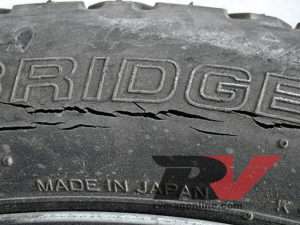
Most tires have a date often found on the sidewall, showing its age. New tires that have not yet been sold can also deteriorate since their rubber softens over time. Therefore, ensure you do not buy tires that have been stored for more than 6years by checking the manufacture date. If you wonder how to know the tire date, check on the last digit code. For instance, if it is written as 2210, it would mean that the tire was manufactured in the 22nd week of 2010. Since older tires could fail, it is appropriate to buy recently manufactured ones.
Type of Tyres
Tires are manufactured in various shapes and forms to meet the consumer’s needs and ensure safety. Let’s discuss different types and their benefit for your vehicle.
Summer tires
These tires are best suited for dry and wet roads, especially during summer. They have a high fuel efficiency, generate minimal noise, and reduce rolling resistance. They contain shallow tread depth, making them suitable for dry surfaces. However, they perform poorly for winter driving because their trade design becomes hard and brittle, unable to handle ice or snow.
Winter Tyres
These tires have been made with a better grip on road surfaces, making them ideal during winter months. They do not harden in freezing temperatures; therefore, they can maintain traction because their tread compound is made with natural rubber. However, they perform poorly on the warm tarmac as they wear out faster. They cannot be used on dry roads during summer as they have higher rolling resistance, resulting in road noise and excessive fuel consumption.
All-season Tyres
Even though all-season tires cannot manage all weather conditions, they are ideal for regions with no defined seasons serving all your needs. They have summer and winter tire properties, providing you with the benefits of both. However, it would be prudent to use winter tires during winter and summer tires for summertime because all-season tires perform best in mild weather conditions. Therefore, it would not be the best choice in extreme weather conditions.
Shariot and Tyre Guide
Here at Shariot, our vehicles’ tires are in good condition to ensure you thoroughly enjoy our car-sharing and rental services. The tires are made with Singaporean weather in mind. Therefore, regardless of the weather conditions, your safety is guaranteed unless careless driving causes an accident. You can be confident that our car tires are ideal for a comfortable and convenient ride at an affordable rate.






No comment yet, add your voice below!